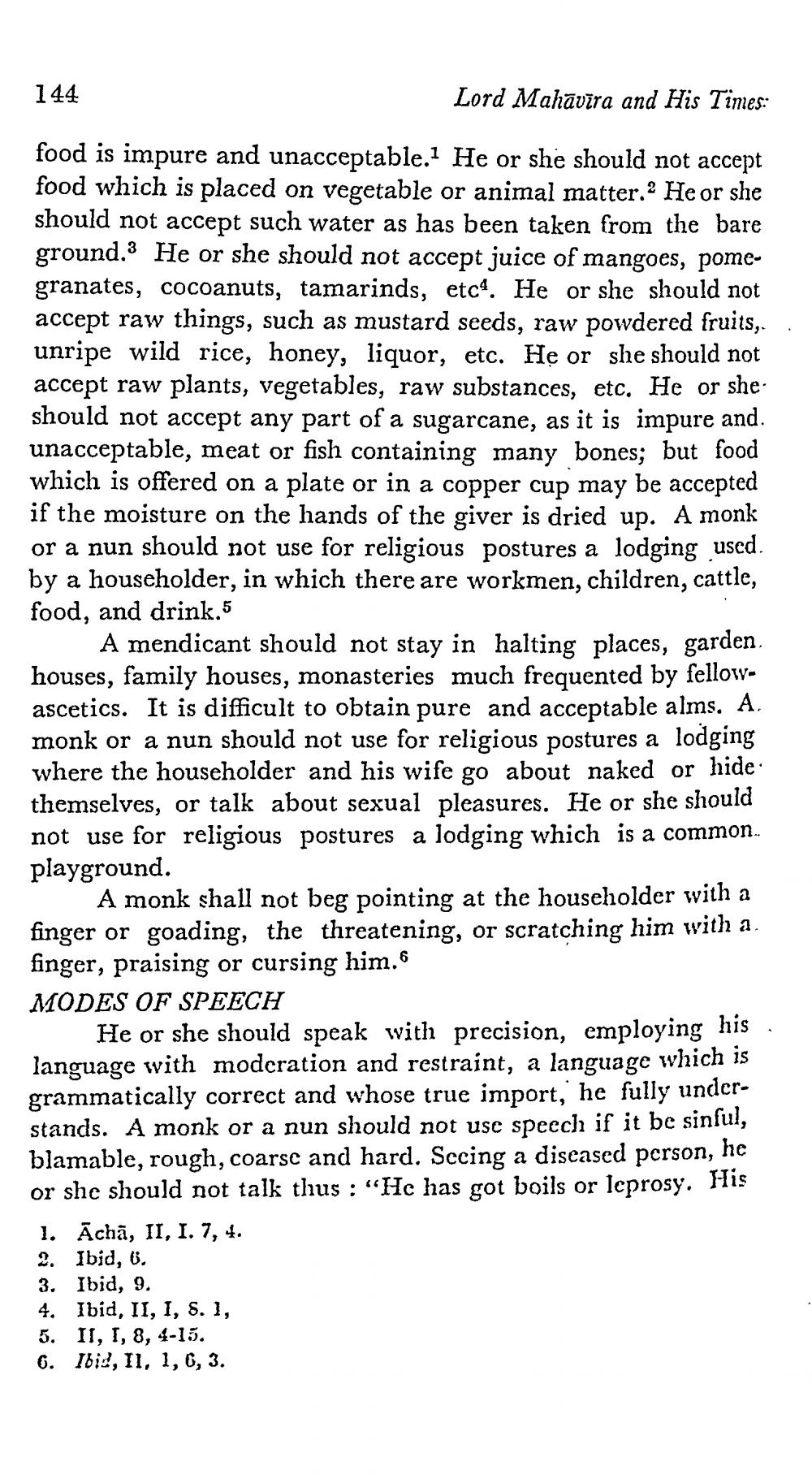________________
144
Lord Mahāvīra and His Times:
food is impure and unacceptable.1 He or she should not accept food which is placed on vegetable or animal matter.? He or she should not accept such water as has been taken from the bare ground. He or she should not accept juice of mangoes, pomegranates, cocoanuts, tamarinds, etc. He or she should not accept raw things, such as mustard seeds, raw powdered fruits, unripe wild rice, honey, liquor, etc. He or she should not accept raw plants, vegetables, raw substances, etc. He or she should not accept any part of a sugarcane, as it is impure and. unacceptable, meat or fish containing many bones; but food which is offered on a plate or in a copper cup may be accepted if the moisture on the hands of the giver is dried up. A monk or a nun should not use for religious postures a lodging used. by a householder, in which there are workmen, children, cattle, food, and drink.5
A mendicant should not stay in halting places, garden. houses, family houses, monasteries much frequented by fellowascetics. It is difficult to obtain pure and acceptable alms. A. monk or a nun should not use for religious postures a lodging where the householder and his wife go about naked or hide. themselves, or talk about sexual pleasures. He or she should not use for religious postures a lodging which is a common.. playground.
A monk shall not beg pointing at the householder with a finger or goading, the threatening, or scratching him with a. finger, praising or cursing him. MODES OF SPEECH
He or she should speak with precision, employing his language with moderation and restraint, a language which is grammatically correct and whose true import, he fully understands. A monk or a nun should not use specch if it be sinful, blamable, rough, coarse and hard. Sccing a diseased person, he or she should not talk thus : "He has got boils or leprosy. His 1. Āchā, II, I. 7, 4. 2. Ibid, o. 3. Ibid, 9. 4. Ibid, II, 1, 8.1, 5. II, 1, 8, 4-15. 6. Ibi:!, II, 1, 6, 3.




